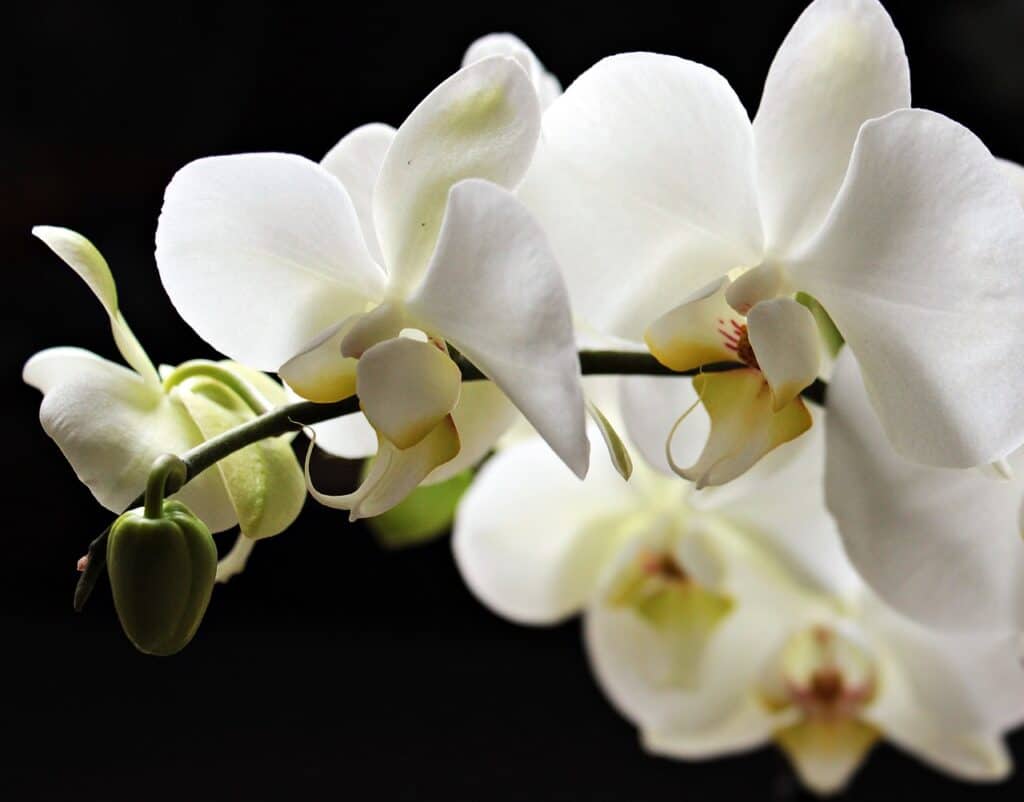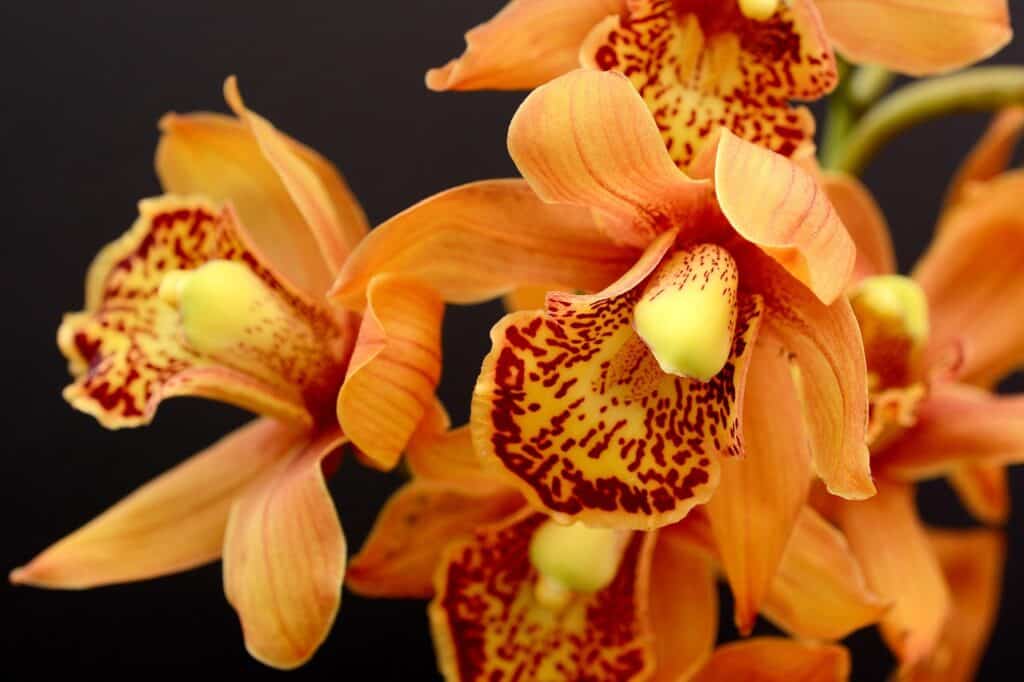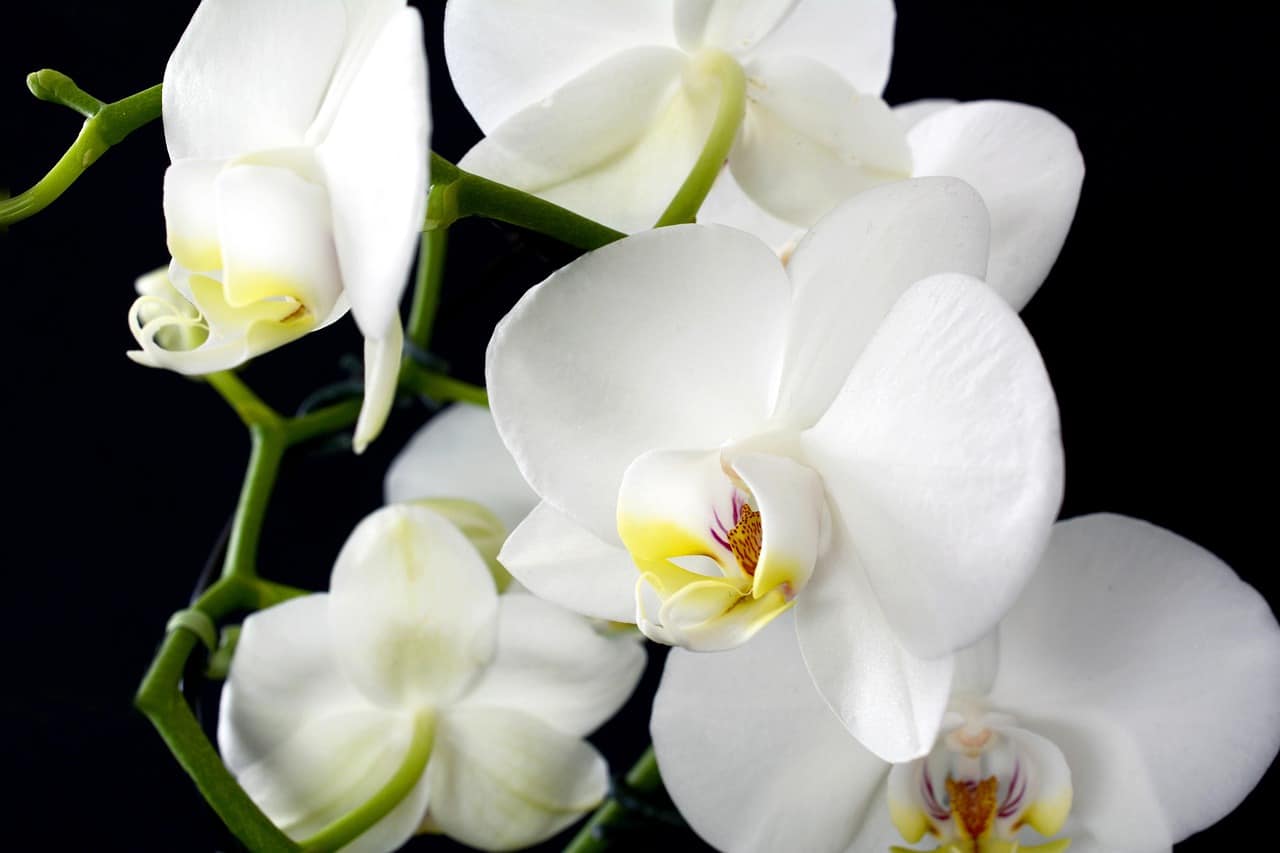Orchids are a beautiful and delicate species of flowering plants that require specific conditions for their growth. One of the most crucial factors in keeping an orchid healthy and blooming is proper nutrition. In this post, we will provide you with a comprehensive guide to the nutritional necessities of orchids and how to feed them adequately to promote optimal growth and flowering.

Why Proper Nutrition is Crucial for Orchids
Orchids are epiphytes, which mean that they grow on the branches of trees in humid and warm environments, like rainforests. In these environments, orchids rely on the natural nutrients from water, air, and the trees they grow on. When grown indoors, orchids are potted in containers filled with sterile soil, which lacks natural nutrients. Proper nutrition is, therefore, crucial for maintaining the health of the orchid, and since orchids cannot rely on the soil, it is up to the caretaker to provide them with the essential nutrients they require.
Understanding the Nutritional Needs of Orchids.
Orchids require three primary macronutrients for their growth: nitrogen (N), phosphorus (P), and potassium (K). These nutrients are the building blocks of plant cells, and without them, plants cannot thrive. An imbalance, however, can cause damage to the plants. For example, too much nitrogen can cause lush and leafy growth, which may lead to weak stems that can’t support the weight of the orchid flowers.
In addition to these primary macronutrients, orchids need micronutrients such as calcium (Ca), magnesium (Mg), and iron (Fe). These micronutrients improve the plants’ health and ensure that the plant has a robust and sturdy structure.
Key Nutrients Essential for Orchids
Nitrogen is a vital nutrient for orchids, and it is responsible for the production of chlorophyll, which gives the plant its green color. Nitrogen is essential for the growth, development, and flowering of orchids. Nitrogen-deficient orchids will have slow growth, yellow leaves, and small flowers.
The Importance of Phosphorus in Orchid Growth
Phosphorus is necessary for the development of roots, flowers, and fruits. It helps with energy transfer within the plant, and it promotes early flowering in orchids. Lack of phosphorus will cause the orchid to have stunted growth and produce small flowers.
The Role of Potassium in Orchid Health
Potassium is responsible for maintaining the osmotic balance in plants, and it helps with the development of strong stems, leaves, and roots. It also promotes disease resistance and assists in creating healthy flowers. Potassium-deficient orchids will have problems with water regulation, weak stems, and yellowing of the leaves.
How to Provide Nutrients to Your Orchid
When feeding orchids, you must choose a fertilizer that is appropriate for the specific type of orchid. You can use a balanced, water-soluble fertilizer, such as 20-20-20, or a specially formulated fertilizer for orchids containing varying N-P-K values. Fertilizers designed for other plants can have detrimental effects on the orchids and are not recommended.
Understanding the Proper Feeding Schedule
It is vital to establish an adequate feeding and watering schedule that works well for orchids. It is recommended that orchids receive fertilizer two to four times a month during the growing season, with water rinsing every third feeding to prevent salt buildup. Overfeeding or underfeeding orchids can lead to nutritional imbalance, root burn, or malnourishment.
Watering Techniques to Help Your Orchids Absorb Nutrients
The timing and amount of water can have a significant effect on your orchid’s absorption of nutrients. Orchids should be watered when the top layer of the soil is dry. Overwatering can cause root rot, while dehydration can lead to malnourishment. If you fertilize your orchid when the soil is dry, it can cause a nutrient burn, so it is best to feed them after they have been watered.

Common Mistakes to Avoid When Feeding Your Orchids
Overfeeding your orchid can cause more harm than good, causing fertilizer build-up and root burn. On the other hand, underfeeding can result in slow growth, yellow leaves, and small flowers. It is best to follow the recommended feeding schedule and use the appropriate amount of fertilizer to prevent imbalances.
Controlling Pests and Diseases When Feeding Your Orchids
Pests, such as spider mites or scale insects, can cause significant damage to orchids, while diseases like root rot can have equally severe effects. It is essential to inspect your orchids regularly and address any issues promptly. Treating pests with insecticidal soap and isolating the orchid can limit the spread of pests and diseases.
Conclusion
Feeding an orchid requires attention and care, but the benefits of having thriving and blooming orchids are worth it. Remember to follow the feeding schedule for your specific orchid type, use the appropriate fertilizer, and pay attention to the watering patterns. By attending to the nutritional needs of your orchid, you can ensure healthy orchids that will brighten any space.

